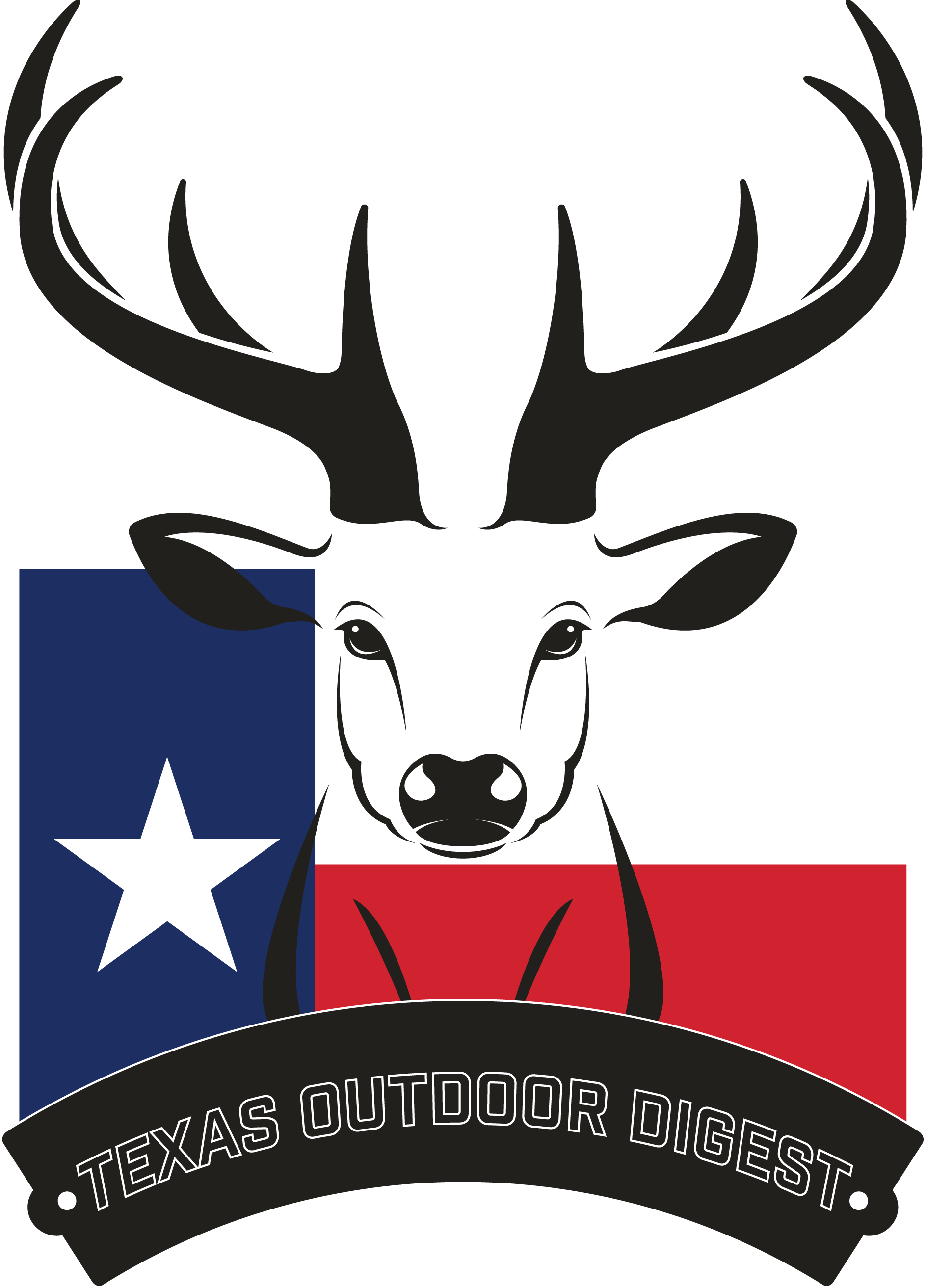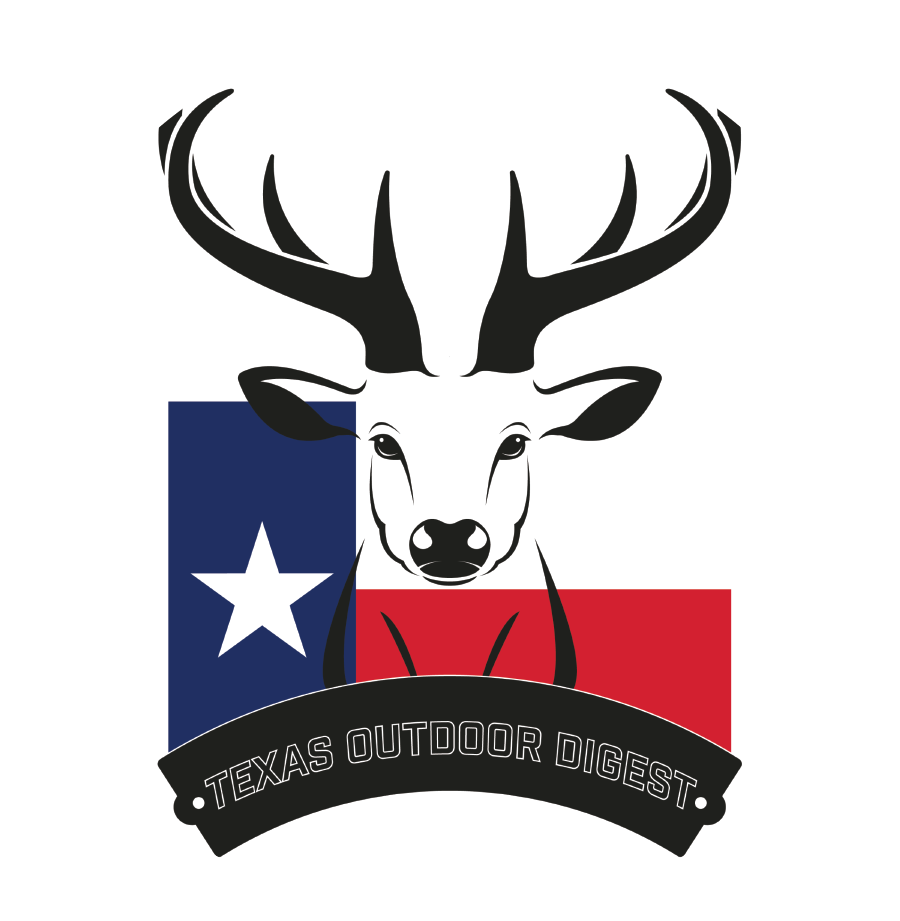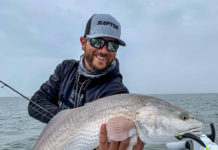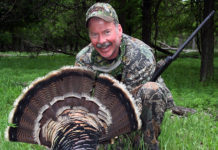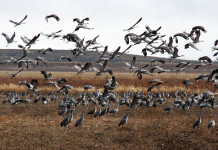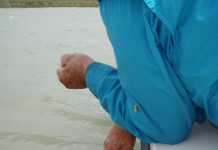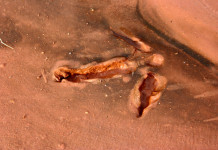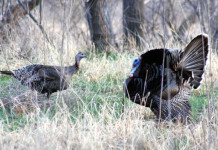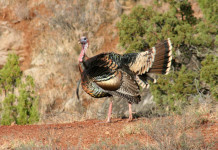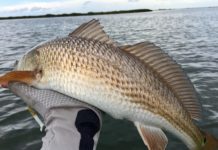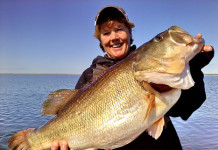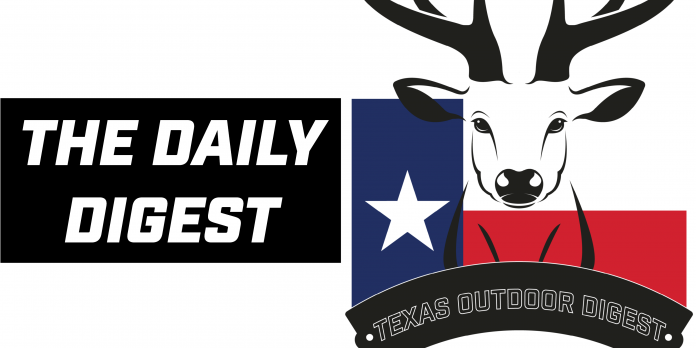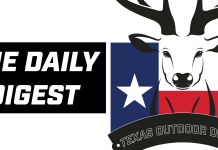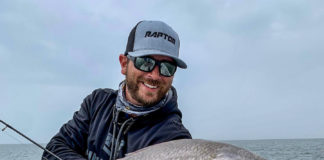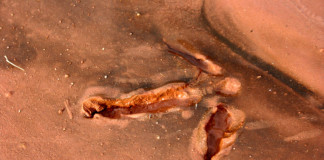The Daily Texas Outdoor Digest is sent to your inbox to keep you up to date about hunting, fishing, conservation and outdoors pursuits making headlines and going viral in the Lone Star State and beyond. It’s free, so subscribe today!
Here’s what’s worth reading today, Tuesday, August 11, 2020:
3 Texas Parks and Wildlife employees killed in helicopter crash during bighorn sheep survey
Texas anglers, boaters urged to help conserve threatened saltwater flats
Conservation groups are asking the tens of thousands of people who boat in Texas coastal waters every year to become part of the solution to conserve diminishing habitats.
Habitat loss and degradation has been documented for years as a problem in coastal bays. The call for conservation comes as people look for a safe outdoor activity during the ongoing pandemic, when choosing to fish or boat in the bays is a popular option.
Compared to last year, the total Texas resident fishing license sales are 27.2% higher, as of the end of June. This increased activity on the Gulf coast means protecting coastal resources has never been more vital. In response to this, a relatively new organization focusing on angler etiquette and behavior called Flatsworthy has emerged on the Texas coast. The group’s three tenets are: Respect Fellow Anglers, Respect the Resource and Respect the Law. Flatsworthy and the Texas Parks and Wildlife Department are therefore urging anglers to avoid damaging marshes and seagrass beds while boating.
Erosion and severe weather degrade these areas the most, but humans do play a role. As a non-profit made up of guides, boaters and anglers, Flatsworthy wants to slow the tide on coastal habitat degradation, and also encourage safe, legal and more civil behavior on the water. By teaching anglers that their actions matter and have a lasting effect on the resource, hopefully bad boating habits can be eliminated.
When navigating the flats, anglers should always Lift, Drift, Pole and Troll their boats to avoid damaging seagrass. Since 2013 it has been illegal to uproot seagrass in Texas with over 50 warnings and citations being given to boaters by Texas Game Wardens. Motorized boats aren’t the only problem though. Air boats should also use caution when out on the water and avoid running over grass islands and wet ground. When cutting through these habitats it destroys vegetation and speeds up the marshes’ erosion process.
What the Great American Outdoors act can do
Everybody loves the national parks — but Congress has been stingy with capital investment money for years.
But it last week passed and President Trump signed a bill to change that. The Great American Outdoors act will devote nearly $3 billion a year from oil and gas leases to maintenance and restoration of national parks.
With an assessment, the project director of restore America’s parks at the Pew Charitable Trusts Marcia Argust joined Federal Drive with Tom Temin.
Our Outdoors: Make it a Mentorship
The recruitment, retainment and reactivation (R3) efforts underway across the hunting and fishing world are notable, monumental and ultimately important to the future of the outdoors and conservation.
States across the map have created special youth hunting weekends ahead of the general openers and agencies sponsor dedicated programs for facilitating time in the field for young and inexperienced hunters in conjunction with nonprofits like Pheasants Forever, the Ruffed Grouse Society and local rod and gun clubs and their volunteers. The last 20 years have seen a seismic shift toward efforts focused on young people and recruiting new hunters to the fold. The transition of information from generation to generation has always been at the core of both the traditions of hunting and conservation.
The next important step in taking these special days or weekends and getting the most out of them is making them part of a larger mentorship process and building a relationship with new hunters ahead of and after the event. In this time where social distancing is still encouraged, it may be that one-on-one mentorship is the best option and working with just one or two mentored youth is the safest option. In that process, however, comes the unique ability for hunters to connect personally, to encourage growth and pass on vital information for a more successful first hunt, setting the stage for a lifetime in the field.
This silver lining to our current social situation allows mentors to provide a deeper experience, more personal insight and increase their ability to connect with new hunters. Additionally, this stretch of August ahead of those mentoring events and dedicated R3 weekends provides an opportunity to lay the foundation for a successful hunt with time for trap shooting, archery practice, and the sighting in of a rifle.
Other Stuff That Might Tickle Your Fancy
We all have that one friend, lol. #IAMSPORTSMAN pic.twitter.com/KFSl4PfxDe
— Sportsman Channel (@SPORTSMANchnl) August 10, 2020
On lake patrol, Game Wardens came across a boat with several violations, including a captain who appeared intoxicated.
During the field sobriety test, the captain said, 'I can't even do this sober.'
Latest @TexasGameWarden cases at https://t.co/GdqQiQnIFD pic.twitter.com/v3ROdl5PxF
— TX Parks & Wildlife (@TPWDnews) August 7, 2020
— Texas Game Warden (@TexasGameWarden) August 2, 2020
Stay in the Know With The Daily Texas Outdoor Digest
If you haven’t subscribed yet, there’s no better time than right now (We hate spam and we won’t share your information with anyone. That’s just not cool):
